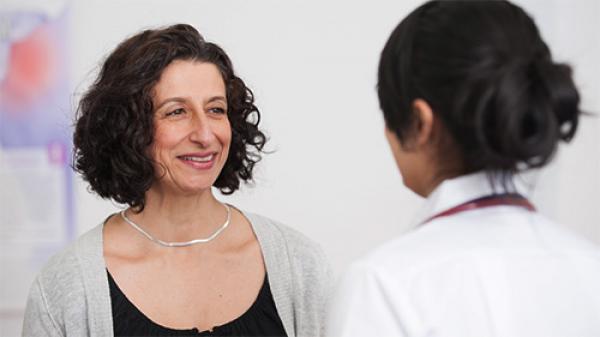On this page:
Member support and representation is at the heart of the CSP's trade union structure. This is achieved through six primary organisational structures.
Find out more about each one on this page, and how they combine to provide a comprehensive and responsive service.
Workplace representatives

Should you have a problem in the workplace, your CSP steward or safety rep will always be your first point of contact – they are there to help.
Stewards and safety reps are familiar with your workplace, they know local managers and HR staff and also have a greater understanding of local policies and procedures. They can therefore offer advice, support and representation on any matter related to your employment.
My CSP rep has been a massive support in getting me back to work
Typically this will concern pay, your employment contract, disciplinaries, grievances and capability matters, injury or ill health. Where necessary, they can negotiate with your employer on your behalf.
Some reps are supported by CSP equality reps – they work with the steward and safety rep as part of the workplace team to raise awareness and organise around equality issues in the workplace.
Your local reps are also supported by a network of regional stewards and safety representatives, and by regionally-based CSP senior negotiating officers (SNOs). SNOs will assist when local reps need extra help in resolving a problem, or in progressing a claim to improve working conditions.
SNOs and other CSP officers - such as national officers and trade union organisers - undertake research, policy and advice work in a range of specialist areas. This extends to pay, grading, health and safety, employment law, equality and diversity, pensions, workforce development and other issues. Officers also respond to government proposals on employment and health policy and take part in employment negotiations.
You were fantastic support throughout the whole situation
Working alongside CSP's officers are a number of support staff, who are often the first point of contact for members and representatives.
- Read about the role of CSP stewards
- Read about the role of CSP safety representatives
- Use our Find My Rep tool, or contact the CSP's enquiries team, if you do not know how to contact a workplace representative
Employment Committee
The society's Employment Committee supports and advises Council – the CSP's governing body – on strategic employment matters affecting employed CSP members at work.
The Committee consists of 12 members, comprising: six members of the CSP, nominated by the National Group of Regional Stewards (see below); and six members of the CSP appointed by Council. Other members and non-members can be invited to inform and support the Committee on specific issues on a non-voting basis.
Employment Committee Terms of Reference June 2021
Regional stewards
Stewards in each region meet regularly and elect a regional steward. Regional stewards organise as a national group that helps develop CSP strategy on workplace issues. The group also plays an important role in informing the CSP's position on issues affecting its members, not least the NHS.
The national group also coordinates regional training days for stewards, submits motions to the Annual Representative Conference and plays an active role within the TUC. CSP delegations routinely attend key TUC conferences. The group meets three times a year and nominates representatives to attend other CSP committees.
Regional safety representatives
Safety reps in each region meet regularly and elect a regional representative. Regional safety reps organise as a national group that helps to develop health and safety policies, CSP campaigns, and resources for the safety reps network.
The national group also coordinates regional training days for safety reps and submits motions to the Annual Representative Conference. The group has representatives on other CSP committees/working groups. The CSP's national health and safety officer supports and assists the national group.
Diversity networks
The CSP has three diversity network groups: DisAbility; Black, Asian and Minority Ethnic (BAME); and Lesbian, Gay, Bisexual, Transgender, Queer, Intersex, Asexual+ (LGBTQIA+)
Any CSP member who self-identifies as LGBTQIA+, disabled or from any ethnic minority can join these groups. Any CSP member interested in and supportive of the work of a diversity network can work with them in solidarity.
Find out more about CSP diversity networks
Annual Representatives Conference (ARC)
ARC is a yearly opportunity for CSP members to come together to discuss and debate what matters most to them. It takes place in the summer over two days, and moves location around the country year on year.
Any CSP member can attend and speak at conference, but only nominated representatives are entitled to vote on motions. Any motions that are carried are subsequently discussed and acted on by CSP Council. In this way ARC acts as a springboard for shaping CSP policy.
Representatives to ARC are nominated by the National Group of Regional Safety Representatives and National Group of Regional Stewards (see above). Diversity network groups, students, regional networks & country boards, professional, retirement and associate members also send representatives.



































